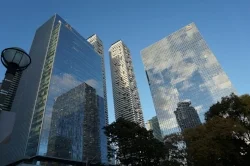Toronto’s Red Hot Real Estate Market
First Published: Oct 2, 2008
Well, finally it looks like Canada’s largest housing market is cooling off. Recent numbers show declines in real estate transactions, however, it may not take a deep dive like in the U.S.
Toronto Real Estate Board reports that for the first half of September, transactions decline 23 percent from the first half of September 2007 and a 11 percent decline from the first half of September 2006. But if you compare 2006 and 2007, in 2007 there was a 16 percent increase in the first half of September than 2006.
Do all these mean that prices are declining as well? Not necessarily. According to Toronto Real Estate Board, average home price in Toronto is $386,524 (as of mid September 2007), up from mid September 2006($384,796), and 12 percent higher than mid September 2006 ($330,005).
As you can see, although real estate transactions are declining, we have not seen any price decreases. One thing I noticed that home owners, who are in the market to sell, finding it hard to do a quick sell like they did it in 2007. One of my relatives is in the market to sell their condo for three weeks – but so far they have not received any genuine responses. If it was last year, “the sell” would have been done by now.
Are you planning to buy a condo or a house? Do you think these real estate stats and recent market volatility will make buyers alter their plans? One of my friends is actively looking for a place to buy and nothing is going to deter him from buying his place. Things like volatile markets, sluggish economy, global financial meltdown, mortgage rates are no problem for him. I have another friend who was looking for a condo. However, since the beginning of recent financial crisis, he gave up his search. He thinks it is not a good time to make a major purchase. He wants to wait until everything is over.
Now, let’s look at a comparison of condo prices I have done.
300 Front Street West in Downtown Toronto (between the CN Tower and Rogers Centre) Square Footage: 1144 Approx
Starting Price: $697,750 Approx
Tentative Occupancy 2012Top Floor: 50th
1 Bloor Street East Condo (Yonge and Bloor intersection) Square Footage: 1150 Approx Starting Price: $1 Million Approx
Tentative Occupancy 2011Top Floor: 80th
A New Condo in Scarborough or North York Square Footage: 1150
Price: Approx From $400,000 to $500,00
A Ten/Fifteen Years Old Condo in Scarborough or North York Square Footage: 1150
Price: Approx Around $200,000
If you are actively looking for a condo or a house, don't dive into any conclusions before doing your research and analyzing all pros and cons.
Real Estate Stats Source: Real Estate Board












